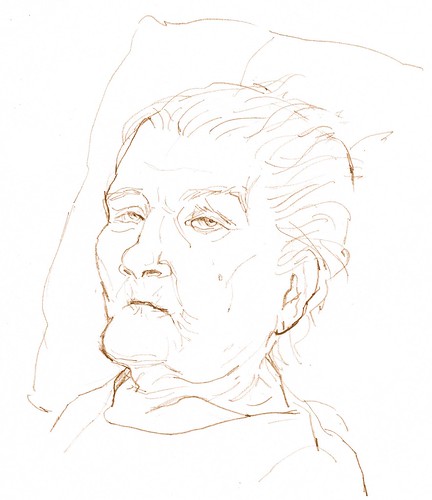
A recent article in the New York Times explains that the impluse to create art could originate with the intimate interaction between a mother and child. Below is a section of the article. A link to the complete article is at the end of the post.
"Ellen Dissanayake, an independent scholar affiliated with the University of Washington, Seattle, offered her sweeping thesis of the evolution of art, nimbly blending familiar themes with the radically new. By her reckoning, the artistic impulse is a human birthright, a trait so ancient, universal and persistent that it is almost surely innate.
Ms. Dissanayake argues that the creative drive has all the earmarks of being an adaptation on its own. The making of art consumes enormous amounts of time and resources, she observed, an extravagance you wouldn’t expect of an evolutionary afterthought. Art also gives us pleasure, she said, and activities that feel good tend to be those that evolution deems too important to leave to chance.
The most radical element of Ms. Dissanayake’s evolutionary framework is her idea about how art got its start. She suggests that many of the basic phonemes of art, the stylistic conventions and tonal patterns, the mental clay, staples and pauses with which even the loftiest creative works are constructed, can be traced back to the most primal of collusions — the intimate interplay between mother and child.
To Ms. Dissanayake, the tightly choreographed rituals that bond mother and child look a lot like the techniques and constructs at the heart of much of our art. “These operations of ritualization, these affiliative signals between mother and infant, are aesthetic operations, too,” she said in an interview. “And aesthetic operations are what artists do. Knowingly or not, when you are choreographing a dance or composing a piece of music, you are formalizing, exaggerating, repeating, manipulating expectation and dynamically varying your theme.” You are using the tools that mothers everywhere have used for hundreds of thousands of generations."
The Dance of Evolution, or How Art Got Its Start




